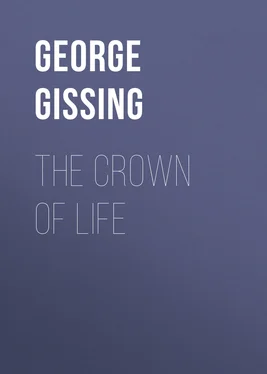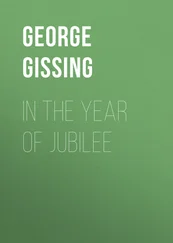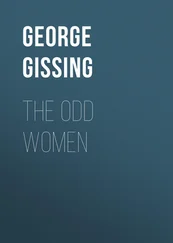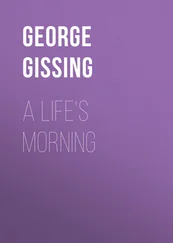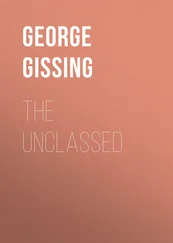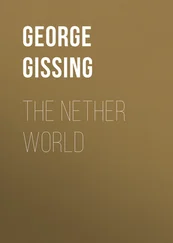George Gissing - The Crown of Life
Здесь есть возможность читать онлайн «George Gissing - The Crown of Life» — ознакомительный отрывок электронной книги совершенно бесплатно, а после прочтения отрывка купить полную версию. В некоторых случаях можно слушать аудио, скачать через торрент в формате fb2 и присутствует краткое содержание. Жанр: foreign_prose, literature_19, foreign_antique, на английском языке. Описание произведения, (предисловие) а так же отзывы посетителей доступны на портале библиотеки ЛибКат.
- Название:The Crown of Life
- Автор:
- Жанр:
- Год:неизвестен
- ISBN:нет данных
- Рейтинг книги:3 / 5. Голосов: 1
-
Избранное:Добавить в избранное
- Отзывы:
-
Ваша оценка:
- 60
- 1
- 2
- 3
- 4
- 5
The Crown of Life: краткое содержание, описание и аннотация
Предлагаем к чтению аннотацию, описание, краткое содержание или предисловие (зависит от того, что написал сам автор книги «The Crown of Life»). Если вы не нашли необходимую информацию о книге — напишите в комментариях, мы постараемся отыскать её.
The Crown of Life — читать онлайн ознакомительный отрывок
Ниже представлен текст книги, разбитый по страницам. Система сохранения места последней прочитанной страницы, позволяет с удобством читать онлайн бесплатно книгу «The Crown of Life», без необходимости каждый раз заново искать на чём Вы остановились. Поставьте закладку, и сможете в любой момент перейти на страницу, на которой закончили чтение.
Интервал:
Закладка:
Piers replied that he was staying at his brother's. Whereupon John Jacks became suddenly thoughtful, said, "Ah, I see," and with a pleasant smile turned to someone else. Only when it was too late did Piers remember that Mr. Jacks possibly had a private opinion about Jerome Otway's elder sons. He wished, above all things, that he could have accepted the invitation. But doubtless it would be repeated some other time.
As he looked about him at the gathering guests, he recalled his depression this afternoon in Bryanston Square, and it seemed to him so ridiculous that he could have laughed aloud. As if he would not have other chances of calling upon Irene Derwent! Ah, but, to be sure, he must provide himself with visiting-cards. A trifling point, but he had since reflected on it with some annoyance.
A hand was extended to him, a pink, delicate, but shapely hand, which his eyes fell upon as he stood in half-reverie. He exchanged civilities with Arnold Jacks.
"I think some particular friends of yours are here," said Arnold. "The Derwents–"
"Indeed! Are they? Miss Derwent?"
Piers' vivacity caused the other to examine him curiously.
"I only learned a day or two ago," Arnold pursued, "that you knew each other."
"I knew Miss Derwent. I haven't met Dr. Derwent or her brother. Are they here yet? I wish you would introduce me."
Again Arnold, smiling discreetly, scrutinised the young man's countenance, and for an instant seemed to reflect as he glanced around.
"The Doctor perhaps hasn't come. But I see Eustace Derwent. Shall we go and speak to him?"
They walked towards Irene's brother, Piers gazing this way and that in eager hope of perceiving Irene herself. He was wild with delight. Could fortune have been kinder? Under what more favourable circumstance could he possibly have renewed his relations with Miss Derwent? Eustace, turning at the right moment, stood face to face with Arnold Jacks, who presented his companion, then moved away. Had he lingered, John Jacks' critical son would have found hints for amused speculation in the scene that followed. For Eustace Derwent, remembering, as always, what he owed to himself and to society, behaved with entire politeness; only, like certain beverages downstairs, it was iced. Otway did not immediately become aware of this.
"I think we missed each other only by an hour or two, when you brought Miss Derwent to Ewell. That very day, curiously, I was lunching here."
"Indeed?" said Eustace, with a marble smile.
"Miss Derwent is here, I hope?" pursued Piers; not with any offensive presumption, but speaking as he thought, rather impetuously.
"I believe Miss Derwent is in the room," was the answer, uttered with singular gravity and accompanied with a particularly freezing look.
This time, Piers could not but feel that Eustace Derwent was speaking oddly. In his peculiar condition, however, he thought it only an amusing characteristic of the young man. He smiled, and was about to continue the dialogue, when, with a slight, quick bow, the other turned away.
"Disagreeable fellow, that!" said Piers to himself. "I hope the Doctor isn't like him. Who could imagine him Irene's brother?"
His spirits were not in the least affected; indeed, every moment they grew more exuberant, as the wine he had drunk wrought progressively upon his brain. Only he could have wished that his cheeks and ears did not burn so; seeing himself again in a glass, he decided that he was really too high-coloured. It would pass, no doubt. Meanwhile, his eyes kept seeking Miss Derwent. The longer she escaped him, the more vehement grew his agitation. Ah, there!
She was seated, and had been hidden by a little group standing in front. At this moment, Eustace Derwent was bending to speak to her; she gave a nod in reply to what he said. As soon as the objectionable brother moved from her side, Piers stepped quickly forward.
"How delightful to meet you here! It seems too good to be true. I called this afternoon at your house—called to see you—but you were not at home. I little imagined I should see you this evening."
Irene raised her eyes, and let them fall back upon her fan; raised them again, and observed the speaker attentively.
"I was told you had called, Mr. Otway."
How her voice thrilled him! What music like that voice! It made him live through his agonies again, which by contrast heightened the rapture of this hour.
"May I sit down by you?"
"Pray do."
He remarked nothing of her coldness; he was conscious only of her presence, of the perfume which breathed from her and made his heart faint with longing.
Irene again glanced at him, and her countenance was troubled. She looked to left and right, sure that they were not overheard, and addressed him with quick directness.
"Where did you dine, Mr. Otway?"
"Dine?—Oh, at a restaurant, with one of my brothers and his wife."
"Did your brother and his wife accompany you to this house?"
Piers was startled. He gazed into her face, and Irene allowed him to meet her eyes, which reminded him most unpleasantly of the look he had seen in those of Eustace.
"Why do you ask that, Miss Derwent?" he faltered.
"I will tell you. I happened to be just behind you as you entered, and couldn't help hearing the words shouted to you by your brother. Will you forgive me for mentioning such a thing? And, as your friend, will you let me say that I think it would be unfortunate if you were introduced to my father this evening? He is not here yet, but he will be—I have taken a great liberty, Mr. Otway; but it seemed to me that I had no choice. When an unpleasant thing has to be done, I always try to do it quickly."
Piers was no longer red of face. A terrible sobriety had fallen upon him; his lips quivered; cold currents ran down his spine. He looked at Irene with the eyes of a dog entreating mercy.
"Had I"—his dry throat forced him to begin again—"had I better go now?"
"That is as you think fit."
Piers stood up, bowed before her, gave her one humble, imploring look, and walked away.
He went down, as though to the supper-room; in a few minutes, he had left the house. He walked to Waterloo Station, and by the last train returned to Ewell.
CHAPTER IX
At the head of Wensleydale, where rolling moor grows mountainous toward the marches of Yorkshire and Westmorland, stands the little market-town named Hawes. One winding street of houses and shops, grey, hard-featured, stout against the weather; with little byways climbing to the height above, on which rises the rugged church, stern even in sunshine; its tower, like a stronghold, looking out upon the brooding-place of storms. Like its inhabitants, the place is harsh of aspect, warm at heart; scornful of graces, its honest solidity speaks the people that built it for their home. This way and that go forth the well-kept roads, leading to other towns, their sharp tracks shine over the dark moorland, climbing by wind-swept hamlets, by many a lonely farm; dipping into sudden hollows, where streams become cascades, and guiding the wayfarers by high, rocky passes from dale to dale. A country always impressive by the severe beauty of its outlines; sometimes speaking to the heart in radiant stillness, its moments of repose mirthful sometimes, inspiring joyous life, with the gleams of its vast sky, the sweet, keen breath of its heaths and pastures; but for the most part shadowed, melancholy, an austere nurse of the striving spirit of man, with menace in its mountain-rack, in the rushing voice of its winds and torrents.
Here, in a small, plain cottage, stone-walled, stone-roofed, looking over the wide and deep hollow of a stream—a beck in the local language—which at this point makes a sounding cataract on its course from the great moor above, lived Jerome Otway. It had been his home for some ten years. He lived as a man of small but sufficient means, amid very plain household furniture, and with no sort of social pretence. With him dwelt his wife, and one maidservant.
Читать дальшеИнтервал:
Закладка:
Похожие книги на «The Crown of Life»
Представляем Вашему вниманию похожие книги на «The Crown of Life» списком для выбора. Мы отобрали схожую по названию и смыслу литературу в надежде предоставить читателям больше вариантов отыскать новые, интересные, ещё непрочитанные произведения.
Обсуждение, отзывы о книге «The Crown of Life» и просто собственные мнения читателей. Оставьте ваши комментарии, напишите, что Вы думаете о произведении, его смысле или главных героях. Укажите что конкретно понравилось, а что нет, и почему Вы так считаете.
